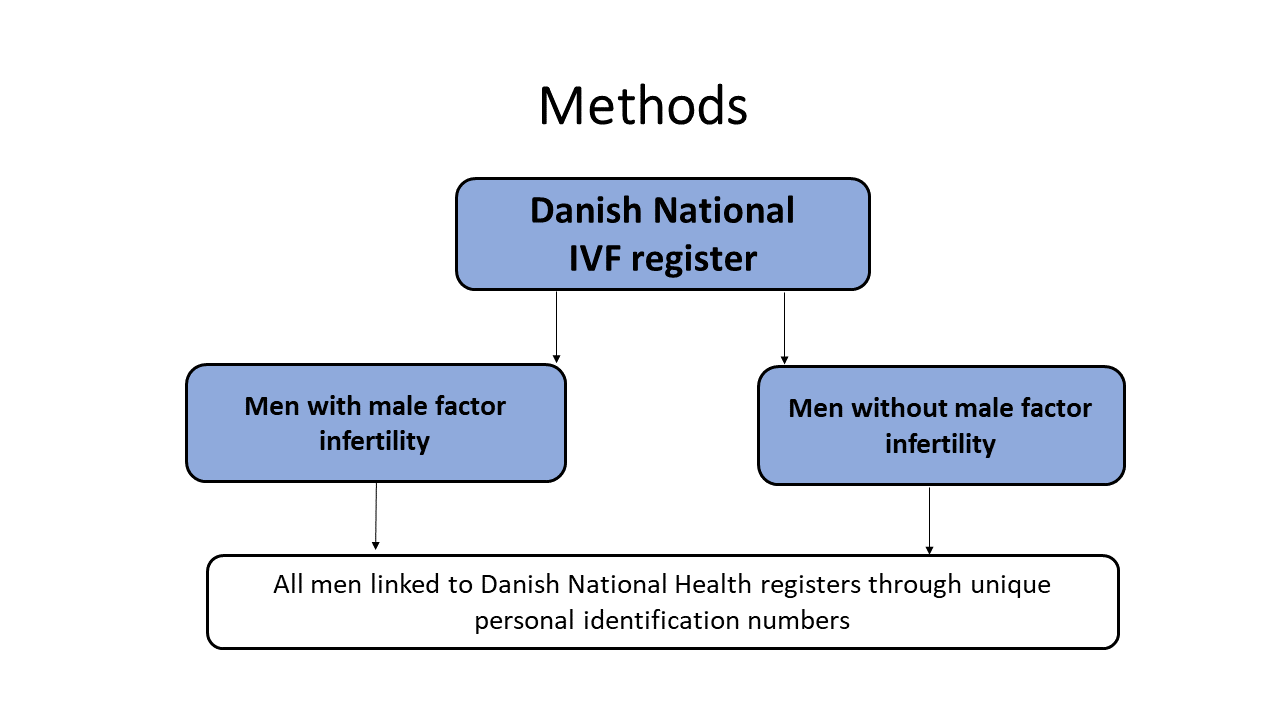This study is a register-based project that draws on several different national registers in Denmark. It is managed by Dep. of Occupational and Environmental Medicine at Bispebjerg Hospital in collaboration with University of Copenhagen, Stanford University, and Reproductive Medicine at Lund University.
Background
In recent years, there has been an increasing interest in the long-term negative impacts of infertility on health. The main focuses have been on the risks of testicular and gynecological cancers with less focus on the risks of non-malignant diseases. The hypothesis is that common underlying etiologies may lead to both infertility and poor health.
The aim of this study is to investigate whether infertility in the younger years is a precursor for the development of chronic disease and mortality.
The Danish national health registers serve a unique opportunity to perform large register-based surveys where extensive cohorts over 100.000 men and women may be included. More specifically, men and women identified from the National Danish IVF register can be followed over many years. Based on the unique CPR number, individuals can be tracked in many other health registers to study specific disease outcomes. For working methodology, see figure below.

Conclusion from our initial studies
So far, our group has published two studies on male factor infertility and risk of disease based on data from the Danish IVF register.
- Risk of diabetes according to male factor infertility: A register-based cohort study. Glazer et al. Human Reproduction. 2017.
- Male factor infertility and risk of multiple sclerosis: A register-based cohort study. Glazer et al. Multiple Sclerosis Journal. 2017.
In both studies, we compared the risk of disease among men with and without male factor infertility. Our results from both studies indicate that infertile men are at increased risk of morbidity in the years following fertility treatment. Further work is warranted to understand the etiology of these findings in order to initiate proper preventive action.
